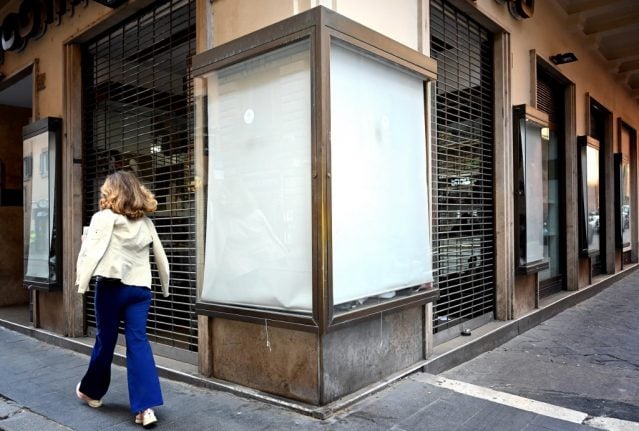Provenzano, 83, was the Cosa Nostra crime group's “boss of bosses” until his arrest in 2006 after 40 years on the run, during which he communicated
with his lieutenants by word of mouth or typewritten notes.
He died at the San Paolo hospital in Milan in northern Italy, where he was being treated for bladder cancer, his lawyer Rosalba Di Gregorio said.
Born in the village of Corleone, whose name of which became associated withthe Sicilian mafia thanks to the “Godfather” novels and films, he reportedly
committed his first murder aged 25, when he killed a rival boss.
He became second-in-command to mafia leader “Toto” Riina, who presided overa series of gangland wars and killings of top judges that were a hallmark of
Italian life in the 1980s.
Provenzano became the uncontested head of Cosa Nostra after Riina wasclapped in cuffs in 1993 – an arrest one supergrass said Provenzano had had a
hand in.
The police sting, which came a year after bomb attacks killed anti-Mafiajudges Giovanni Falcone and Paolo Borsellino, was considered a major victory
in the struggle against the organised crime group.
Provenzano is said to have struck a deal with the authorities, persuadingthem that he was the only one who could forge a new strategy for Cosa Nostra
and stop the attacks.
The violence did largely abate, with the new boss ushering in an era inwhich the group focused on infiltrating the police force.
€2.5 million bounty
Provenzano later gained a second nickname, “the accountant”, because of his mastery of his crime empire's finances.
However, one predecessor, Luciano Leggio – dubbed “the professor” for hishabit of correcting his henchmen's grammatical mistakes – said that while
Provenzano fired weapons “like a God”, he had “the brain of a chicken”.
During the mid 1990s, when he was being actively sought by the authorities, the price on Provenzano's head was said to be some three billion lira, or
around €1.5 million.
By 2003 the bounty had risen to €2.5 million, but he still remainedelusive.
In the absence of photos of Provenzano – the most recent one reportedly dated from 1959 — police were reduced to making computer enhancements of old
pictures, to try and guess what he now looked like.
Police got a lucky break in 2002 when they received a tip-off that he had undergone an operation for prostate cancer in Marseille, leaving behind a copy
of an identity card which bore a false name but real photograph.
Top of Italy's most-wanted list for decades, Provenzano was finallyarrested in a farmhouse in his fiefdom in Corleone near Palermo.
Sentenced to several consecutive life sentences, he was transferred in 2014to hospital in Milan suffering from neurological problems. Italy's supreme
court rejected a plea from his lawyers to release him on the grounds of illhealth.
Several trials he was a defendant in were suspended as his mental health deteriorated.
Provenzano had reportedly attempted suicide in prison in 2012 but was stopped when guards found him with a bag over his head.
Mafia bosses captured in Italy are imprisoned in particularly severeconditions under a law known as “41 bis”, which greatly restricts their
contact with other inmates and non-prisoners in an attempt to stop them continuing to orchestrate crime from the inside.
Inmates can only speak to visitors via intercom from behind a thick glass wall – or swap their one-hour monthly visit for one 10-minute telephone call.
“Provanzano's death does not mean the death of Cosa Nostra,” journalist and mafia expert Rino Giacalone told La Stampa daily.
“Cosa Nostra in the meantime has transformed, it has placed itself in the hands of his successor, a fugitive, Matteo Messina Denaro,” reportedly a murderous, fast-living mobster, a “playboy” big on extortion, money laundering and women.
Former anti-mafia prosecutor Antonio Ingroia said “too many mysteries will never end in truth and justice with Provenzano's death. He takes them to his
tomb, leaving behind a long streak of blood”.




 Please whitelist us to continue reading.
Please whitelist us to continue reading.
Member comments